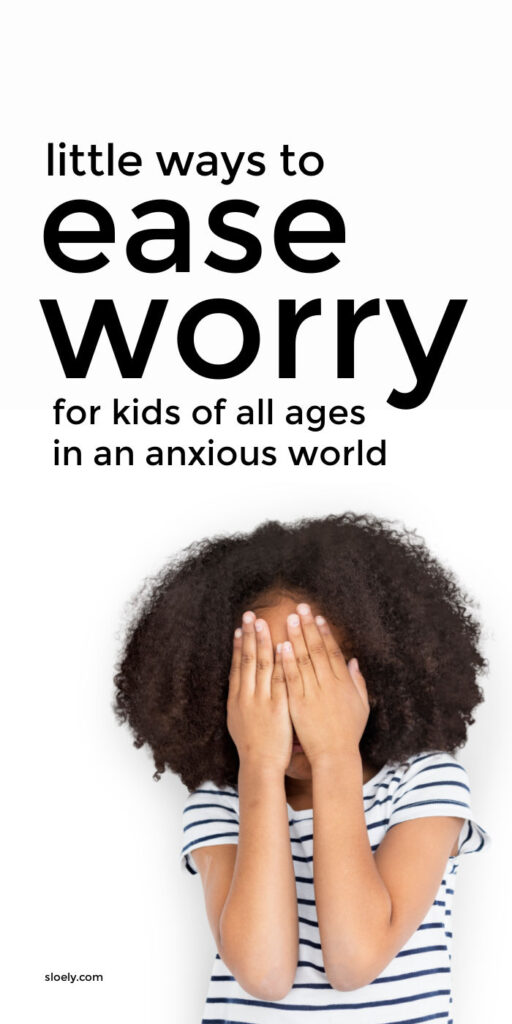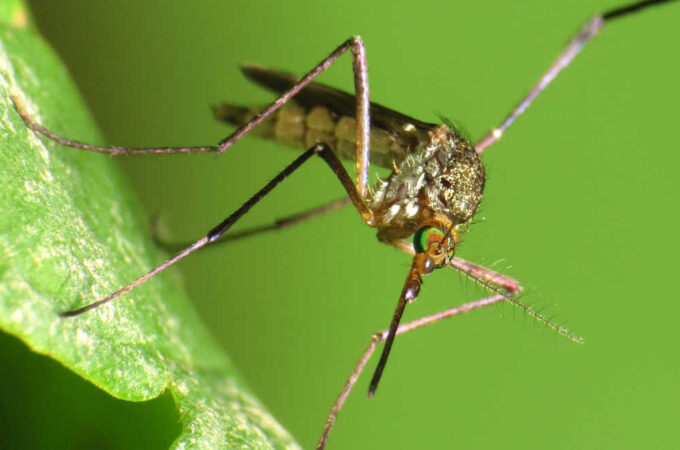
Kids are meant to worry.
We all are because worrying is part of being human and it keeps us alert to new and changing dangers and can motivate creativity, hard work and bravery. But these days the benefits of a healthy level of anxiety have been overwhelmed for many kids by constant and destructive worrying.
And that has left many of us as parents struggling to know how to help kids who worry a lot and who are being hurt by it.
As a parent, it’s very tempting to personalise our kids behaviour and see self-destructive worrying as their problem that we need to help them solve but this ignores the many ways in which our lifestyles today transform our natural instinct to worry into a monster within that our kids cannot control.
We live right now in an always-on, ever-busy, over anxious world in which we are all constantly bombarded with “news” and the pressure to keep up. Surviving this onslaught has unleashed – if we’re honest – our owner inner demons.
So if we’re trying to help kids who worry “too much” we do need to look very hard at the way we are living our lives as a family and as a community and ask ourselves whether it is actually us who is feeding their monster. And whether it is actually our problem and not theirs.
But if we do have a child who is really struggling and suffering with worry, what then can we do practically as parent to help?
How Can We Help Kids Who Worry?
Some children who worry a lot unquestionably need specialist support to help them and I’m not a specialist in any way – I am just a mother learning to ease tendencies to worry destructively in my own family – but I have found there are simple changes we can make in our lives that in the short term help tame the worry monster and in the long term starve it of food.
So in this post I have tried to bring together all the small simple every day ways I have discovered to help kids ease their worries. These little changes aren’t a silver bullet that “solves” worrying.
Some of us have some pretty hard wired tendencies to worry more about stuff that others will take easily in their stride. And most of us as kids and adults will naturally go through seasons of life – such as puberty, pregnancy, perimenopause and old age – in which we worry more.
And it is near impossible to step away completely from the anxiety inducing overload of the digital world and the catastrophising it encourages.
But little changes to our every day life can powerfully reset the balance between healthy anxiety and more destructive worrying that sucks the joy out of living.
I do hope these simple tips give you some ideas of how you can support kids who are worrying a lot and also help you as a parent ease any tendencies of your own to worry destructively. I would really value your feedback.
If you find these ideas helpful please do share with others and for more support do have a read of my other slow parenting posts.

Simple Ways To Help Kids Who Worry A Lot
None of these simple tips – as I said – are silver bullet solutions for worrying but find a good handful or so that really resonate with you and invest your energy into turning them into habits for the whole family.
Over time those habits become easy paths to more positive and hopeful emotions that provide balance for our worries …
Cover The Bases
- Spend lots more time outdoors and explore.
- Get up early and get daylight (this is transformative for all of us young and old!!)
- Get enough sleep.
- Cut down sugar as much as you can as it triggers stress hormones and physical inflammation which can itself lead to anxiety.
- Ensure kids enjoy at least an hour of totally free play daily.
- Practise a little something for pure pleasure every day.
- Give kids some undivided attention everyday e.g. play games with your phone off.
- Slash screen time. Screen exposure triggers the stress hormone cortisol. Constantly raised cortisol levels prime kids bodies to worry.
- Stick to clear boundaries.
Slowly Increase Independence
- Build children’s independence week by week, month by month.
- Give them freedom to play out of sight of any adults.
- Give responsibility for animals.
- Give responsibility for younger children.
- Grow something simple. Helping things grow is a powerful antidote for pessimism.
- Give them responsibility for themselves e.g. walking to school alone.
- Give them more and more age challenging responsibilities …
- … and help them succeed.
Model Creative Resilience
- Swallow little tadpoles together …
- … so you only occasionally have to swallow the frogs.
- Enjoy “winging it” … sometimes.
- Have fun “making do”.
- Get outside and work on something hard together.
- Read stories where tough challenges are resolved.
- Model acceptance of luck and chance and things we can’t change.
- Avoid catastrophising about your life …
- … and about the world. This is a tricky one right now because of the pandemic and climate change but it is not healthy for children.
Nurture Bodies
- Stimulate the vagus nerve …
- Hum tunes
- Whistle whilst you work
- Sing songs together
- Enjoy balancing activities every single day: bikes, scooters, balancing on the curb, balancing on a log, walking on a wall. These are essential to children’s neurological development. Missing out on them can actually leave kids feeling unbalanced.
- Enjoy crossing the mid line activities : climbing, skipping, hopscotch, Twister. Ditto.
- Encourage simple repetitive but creative fine motor activities – lego, jigsaws, finger knitting, sewing, fine painting. These are self-soothing habits for life.
- Cuddle lots.
- Eat plenty of complex B vitamins in whole grain food, nuts, seeds and good meat.
- Have frequent contact with animals.
Foster Forgiveness
- Say sorry.
- Ask for forgiveness genuinely so they never doubt it is possible.
Self Awareness
- Help them understand their tendencies e.g. introversion, extraversion …
- … and adopt simple strategies to support and compensate.
- But don’t always personalise problems … some challenging behaviour is a natural stage of child development.
- Be open about your emotions and how you’re handling them …
- … but don’t over share.
- Recognise patterns in worrying e.g. start of new school year and make time for more support in these periods.
Simplify & Slow Down
- Declutter your home.
- Declutter your schedule.
- Simplify transitions.
- Slow down transitions.
- Keep a day of rest for everyone.
- Leave some slack in every day.
- Have unplanned days.
- Go on a low information diet as a family and break your collective addiction to “news”.
- Give the whole family more time to slow down and actually enjoy living right here, right now ….
These apparently tiny changes in our lives truly can help us resist the intense pressure of an over busy world and help tame the inner demons we all have that feed on our worries and leave us fearful of life itself.
I do help these simples help you support kids who are worrying a lot. For more simple slow parenting ideas do have a read of these posts:
- Slower Happier Parenting
- Lovely Ways To Calm Down
- Self Care For Stressed Mothers
- Helping Kids Who Hate School
- How To Help Kids With Transitions
And if these tips struck a chord do sign up for my occasional newsletter. I won’t be bombarding you with stuff but just sharing the practical tips and thoughts that make my family life more fun …
Or if you are a Pinterest fan do follow my Positive Parenting – Happy Kids board.















Leave a Reply